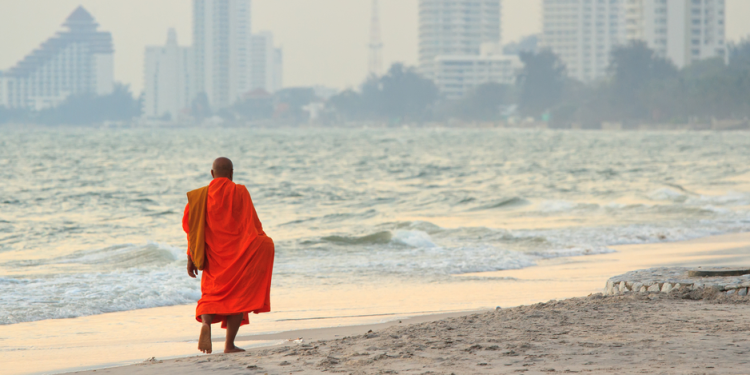
Religious freedom is a crucial point to consider when planning your move abroad. Regardless of your country of origin, you are probably wondering whether you will be able to express your religious beliefs – and even practice your religion – in your new home without any restriction. Expat.com brings you an overview of the countries with the most and least religious freedom according to the Religious Freedom Report 2017.
The world's most stable countries

Being a land of immigration since centuries, Canada is one of the world's most stable countries with its citizens enjoying a reliable and lasting religious freedom. The Canadian Constitution guarantees freedom of conscience and religion, thought, belief, opinion and expression, without any form of discrimination. Religious groups are under no obligation to register with the government even though they have to declare themselves as non-profit organisations. Also, Protestant and Catholic minorities are entitled to publicly funded schools. While Canada's situation has remained unchanged over the past few years, risks of intolerance and discrimination linked to global terrorism threats are present.
The United States of America is also a nation made of citizens from all over the world, including Europe, Asia, Africa, and the Middle East. The country's situation remains unchanged, thus granting a lot of religious freedom to its population. Americans of all religious faiths have the right to legal and political respect in spite of various threats, including terrorism. The US Supreme Court has once again committed to preserving religious freedom as well as traditions observed by minority groups. The rest of America, including Brazil, Argentina, Panama, and Costa Rica also stand out for their religious tolerance thanks to their great cultural diversity.
Most of Europe – except for Ukraine where religious persecution is evident – is a stable region. France, for example, is a secular state where various religions coexist. The French government has on several occasions reiterated its commitment to preserving religious harmony in spite of incidents such as recent terror attacks that have raised many questions. So far, Germany and Belgium, remain avid suporters of religious freedom. In fact, religious freedom is one of the fundamental values of the Belgian society despite intolerance incidents over the past year. Australia, New Zealand, Malaysia, Thailand, and South Africa also secure religious freedom to their populations.
Countries with present discrimination

Turkey is among the less stable countries due to religious discrimination which is closely linked to the country's social and political instability and insecurity. Even though the Turkish constitution incorporates secularism, Turkey is increasingly associated with Islam. Religious groups in Turkey constantly complain of being victims of religious discrimination and churches are seen by Turks as missionary institutions.
Algeria's population mainly consists of Sunni Muslims, and most Christians living in Algeria are expatriates coming from sub-Saharan Africa. In Algeria, Islam is regarded as the State religion, and thus anything going against this is strictly prohibited. Religious groups in Algeria have to register with the government before undertaking any religious activities, and they are allowed to gather only at specific locations indicated by the government.
Vietnam – a popular expat destination – is a country where religious discrimination is a reality. Vietnamese laws have initially been designed to preserve religious freedom. However, independent religious organisations often face different types of abuse. This is why a constitution was adopted in 2013, compelling Vietnamese authorities and citizens to show greater respect for religious freedom regardless of their personal beliefs. Vietnam has also committed to respecting its citizens' fundamental rights when signing the Trans-Pacific Partnership (TPP) agreement in 2016.
Countries with high religious persecution

China is still a country where you could face religious persecution. The Chinese Constitution guarantees religious freedom concerning activities that are considered as normal by the state. However, the situation seems to have worsened in recent years. In fact, anyone caught praying outside the specific framework established by the state is considered a criminal. Formally registered religious organisations are also often subject to restrictions and even prohibitions. Christianity is seen in China as a Western religion constituting “spiritual pollution”, and this is why Western festivities, such as Christmas, are banned in many Chinese cities where you're not likely to find Christmas trees or greeting cards. Many Christian websites hosted in or outside China have also been blocked.
With its Muslim majority, Indonesia is defined by its transition from military to multi-party democracy. Known for its multiculturalism and religious harmony, Indonesia is not necessarily a religiously stable country. Indonesia has been facing increasing threats in recent years, which is opposed to its national motto “Unity in Diversity”. The country has also been experiencing the rise of radical Islamist groups that have instituted religious intolerance in many regions through violence. However, the Indonesian government recently committed to granting greater protection to religious communities – which comes as a glimmer of hope for religious freedom.
Nigeria and Kenya are among the countries that have worsened in recent years in terms of religious freedom. Nigeria is struggling to cope with the pressure exerted by Boko Haram, which resulted in increased insecurity, even though President Buhari has firmly committed to the fight against terrorism with the help of foreign powers. In Kenya, where the law guarantees religious freedom, citizens still find it hard to openly express their religious beliefs due to its unstable political situation. Kenyans – including Muslims and Christians – are divided by social barriers and feel scared on a daily basis. The Kenyan government is still trying to find concrete solutions to restore religious tolerance in the long run.



















